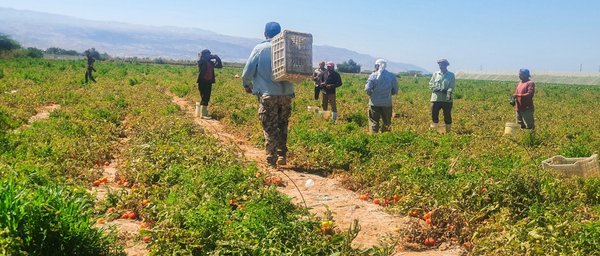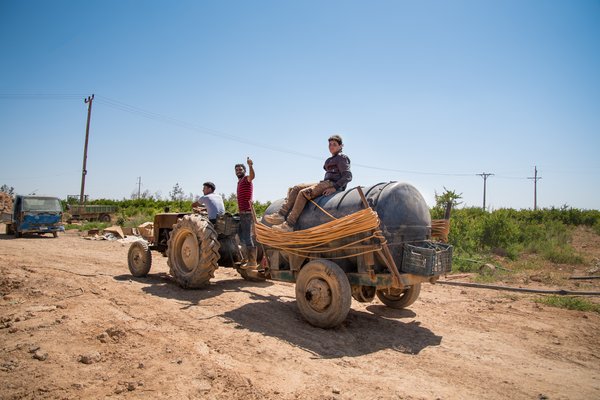
Delga village, Menya governorate, Upper Egypt, featuring Egyptian returnee men from Jordan. Photo via Ali Zaraay and Farah Hallabeh.
Introduction
Migration is a complex and multifaceted phenomenon that shapes the lives of millions around the globe. The Middle East, in particular, is a region with significant migratory patterns, as individuals seek opportunities, stability and a better quality of life in host countries. Among the various forms of migration, return migration, where individuals decide to repatriate to their home countries, offers a unique lens through which we can understand the intricate interplay of economic, social and emotional factors that influence such decisions.
This case study explores the complex dynamics of return migration, specifically examining the experiences of Egyptian migrants who previously lived in Jordan. The migration of Egyptians to Jordan is recognised as a temporary occurrence, notwithstanding the fact that a significant number of them have established long-term residency there. Nevertheless, Jordan does not actively endorse the integration of these migrants nor grant them the chance to acquire Jordanian citizenship, which ultimately leads to their inevitable return to Egypt.
Through in-depth interviews, the study explores the motivations driving repatriation, the complex decision-making processes individuals navigate and the emotional responses upon returning to their homeland. Key themes include family reunification, aging and health concerns, employment conditions, financial objectives, emotional factors, community influence and the impact of the COVID-19 pandemic. The findings reveal a nuanced interplay of factors shaping the migration journey and contribute valuable insights to the broader field of migration studies.
As the dynamics of migration continue to evolve, understanding the motivations behind return migration becomes crucial for policymakers, researchers, and communities alike. By exploring the specific case of Egyptian migrants in Jordan, this study not only contributes to the existing literature on return migration but also offers insights into the broader discourse on migration patterns in the Middle East.
In the sections that follow, we outline the preliminary findings of the study, unpacking motivations, decision-making processes, emotional responses, and future considerations that characterize the experiences of those who have chosen to return to Egypt. Through this exploration, we aim to provide a comprehensive understanding of the factors that shape the choices made by returning migrants and contribute to the ongoing dialogue on the intricacies of human mobility in the contemporary world.



